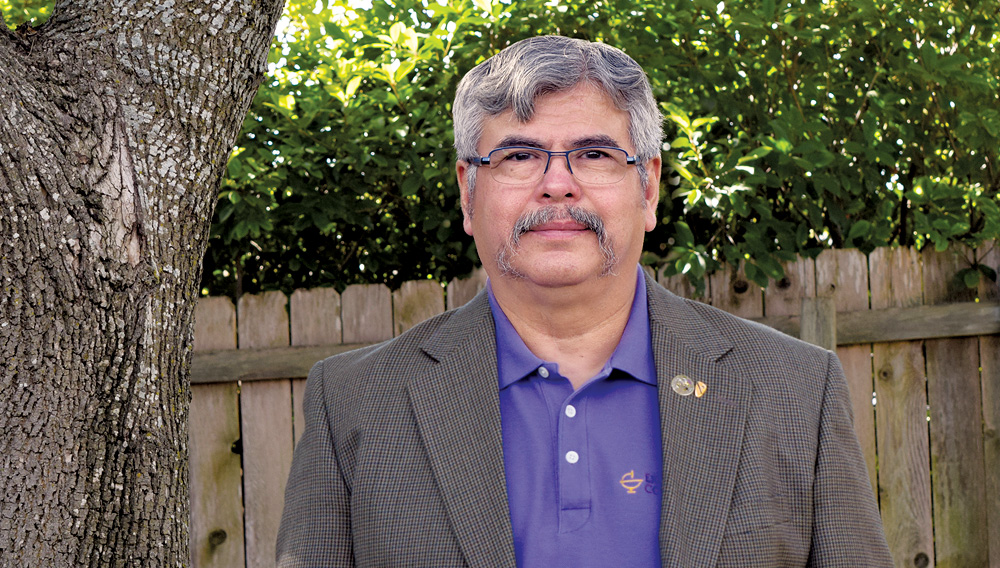Q&A with Rick Hernandez

What led you to your position as a military education representative?
When I retired from the Army, I knew that I wanted to be involved in education. While in the Army, I understood the importance of an education and I encouraged soldiers to seek it. When an opportunity developed, I applied for a temporary position with Excelsior with duties at Fort Hood, Texas. That was in December 2007. This title has changed several times, but I still provide unofficial reviews, help with course selection, give educational advice; conduct education fairs; and assist students with enrollment procedures.
What do you enjoy the most about your job as a military education representative?
I enjoy working with military personnel, family members, and veterans to achieve their educational goals and to help them with their careers and personal growth. It is exciting to see their enthusiasm during the process. Seeing their satisfaction as well as the excitement of their family and friends is rewarding for me, especially during graduation.
What drew you to the military?
I volunteered for military service in 1974, at a time when the Army was not a good place to be. The Vietnam War was still going on and many Americans opposed our country’s involvement. My parents and siblings were also opposed to me volunteering. However, I believe I understood that I needed to do something better for myself. Not coming from a military family or with any education intentions, I entered the Army as a reconnaissance specialist shortly after high school. It took me some time to understand the discipline needed as well as the many personal sacrifices for myself and family that came with being in the Army. As I look back on my decision for military service, I thank those who served before me and helped me along my 30-year journey.
What inspires you about the military students you work with?
I see myself in them. I try to explain to them the work needed for a good education and how it will help them in the future. I also see the push back from some of the older soldiers and those who do not fully understand how education would benefit them. There rests my real challenge: convincing military leaders how education would benefit them in their future. I must make sure that my educational relationship with the students is professional but, more important, current with their needs and that of our country.
As an alumnus of Excelsior College, what advice do you give to current students?
For myself, it [being an Excelsior graduate] allows me to connect with other Excelsior graduates, especially military persons. I enjoy discussing ideas about how to best highlight our experience and quality of the coursework at Excelsior. I also like to enlighten others about the process of how the College was able to use my experience from the military and transfer it to college credit. The people I talk to are amazed at how much credit Excelsior accepts. For me, this is what makes the school truly military friendly!
How has the COVID-19 pandemic affected, if at all, your ability to help students?
Before the COVID-19 pandemic, many students could come and visit me in my office to discuss their educational needs. Many of their questions involved answering with visual effects or assistance from one of the military counselors. Now, this is something that I must be able to articulate over the phone or by email. I am still able to provide them with the same quality advice without being physically present although it requires me to be patient because it is time consuming. I must make sure they fully understand the process.
What motivates you?
I would say that I motivate myself through my children. I want to set a good example for others. I grew up in a family in which education was not as important as working. However, my mother would tell me that I needed to work harder at school, but I did not take it to heart. While in the military, I knew a couple of soldiers who had associate degrees. From them, I learned the importance of an education. In the military it was difficult to earn a degree because, during my time, most enlisted soldiers did not have degrees and the leadership did not encourage you. However, I was set on completing my bachelor’s degree. Once I completed my bachelor’s degree, I wanted more. My three grown children have traditional bachelor’s degrees.
What’s the best advice you’ve ever been given?
I have a few good pieces of advice.
My mother would say that we should be respectful of others as best that we can. Always say thank you and try to let go of an unfriendly feeling toward others. For me, that means to be kind to others and never be a fair-weather friend.
My mentor told me this: Knowledge is vital to success and well-being, so never stop growing. To do this you must keep on learning from others and for yourself. For me, that means pursuing education and being involved in the community.
I learned this from a Vietnam veteran: He would tell me that you can only change what is your responsibility, so don’t wait for someone to improve your situation. While in the military, many soldiers would ask where was the best place to be stationed. I would always respond with, “Wherever I am at is the best place.” What I meant by that is that it was my obligation to make my next duty station as good, if not better, than where I came from.



